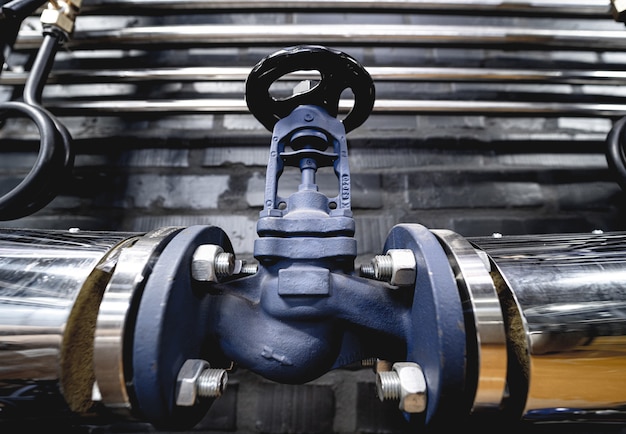Valves play a crucial role in controlling fluid flow in industrial systems. Among the many types of valves, globe valves and gate valves are two of the most commonly used due to their effectiveness and versatility. However, each valve type serves a unique purpose and is suitable for specific applications. In this blog, we will discuss the key differences between globe valves and gate valves, including their design, functionality, and common applications. We will also highlight the importance of choosing the right globe valves supplier for reliable and durable products.
1. Design and Construction
Globe Valve Design
A globe valve consists of a movable disk or plug and a stationary ring seat, both enclosed within a spherical body. The flow of fluid is controlled by raising or lowering the disk using a stem attached to a handwheel or actuator. The unique shape of the valve body, which resembles a globe, gives it its name.
Key design features:
- The flow path is not straight; it changes direction twice, creating an S-shaped flow.
- This design results in better throttling capabilities but higher pressure drop.
Gate Valve Design
A gate valve consists of a flat or wedge-shaped gate that moves perpendicular to the flow of fluid. The gate is either fully raised or fully lowered to start or stop the flow, making it ideal for on/off applications.
Key design features:
- The flow path is straight, allowing for minimal pressure drop when fully open.
- Not suitable for throttling or regulating flow due to the risk of gate erosion.
2. Functionality
Globe Valve Functionality
Globe valves are designed for throttling and regulating flow. The user can precisely control the fluid flow by adjusting the position of the disk relative to the seat. They are suitable for applications requiring frequent operation, precise flow control, and high-pressure conditions.
Key advantages:
- Excellent for flow regulation.
- Suitable for high-pressure applications.
- Offers good sealing capabilities when closed.
Gate Valve Functionality
Gate valves are best for applications where a full flow or complete shutoff is required. Since they are not designed for throttling, they are typically used in situations where valves are either fully open or fully closed.
Key advantages:
- Minimal pressure drop when open.
- Ideal for isolating fluid flow.
- Can handle large volumes of fluid with ease.
3. Applications
Globe Valve Applications
Globe valves are commonly used in systems that require precise flow control and frequent operation. Typical applications include:
- Oil and gas pipelines
- Power plants
- Chemical processing
- Water treatment plants
When looking for high-quality globe valves for industrial use, it’s essential to choose a reputable globe valves supplier that offers durable, corrosion-resistant products.
Gate Valve Applications
Gate valves are suitable for applications where full flow or complete isolation is required, such as:
- Water distribution systems
- Petroleum and natural gas pipelines
- Marine systems
- Industrial plants
Gate valves are ideal for infrequent operation since they perform best when fully open or fully closed
4. Choosing the Right Valve for Your Application
When deciding between a globe valve and a gate valve, consider the following factors:
- Purpose of the Valve
- If you need to regulate or throttle flow, a globe valve is the better choice. For simple on/off control, a gate valve is more suitable.
- Pressure Requirements
- Globe valves are better for high-pressure applications where precise control is necessary, while gate valves are ideal for low-pressure systems requiring high volume flow.
- Frequency of Operation
- Globe valves are designed for frequent operation, while gate valves are more appropriate for systems that require occasional operation.
5. Importance of a Reliable Globe Valves Supplier
Whether you are in the oil and gas, chemical, or water treatment industry, the performance of your system depends heavily on the quality of the valves used. Working with a trusted globe valves supplier ensures that you get products that meet industry standards and can withstand harsh operating conditions.
A reliable supplier should offer:
- A wide range of globe valve sizes and materials.
- Customizable options to suit specific applications.
- Products that comply with international quality standards.
- Comprehensive support and after-sales service.
Conclusion
Understanding the differences between globe valves and gate valves is crucial for selecting the right valve for your application. While gate valves are ideal for on/off control with minimal pressure drop, globe valves excel in flow regulation and precise control. Choosing the right type of valve and working with a trusted globe valves supplier ensures long-lasting performance, reliability, and safety in your industrial operations.
If you need high-quality globe valves for your industrial systems, make sure to contact a reputable supplier who can provide durable and efficient solutions tailored to your needs.





Comments